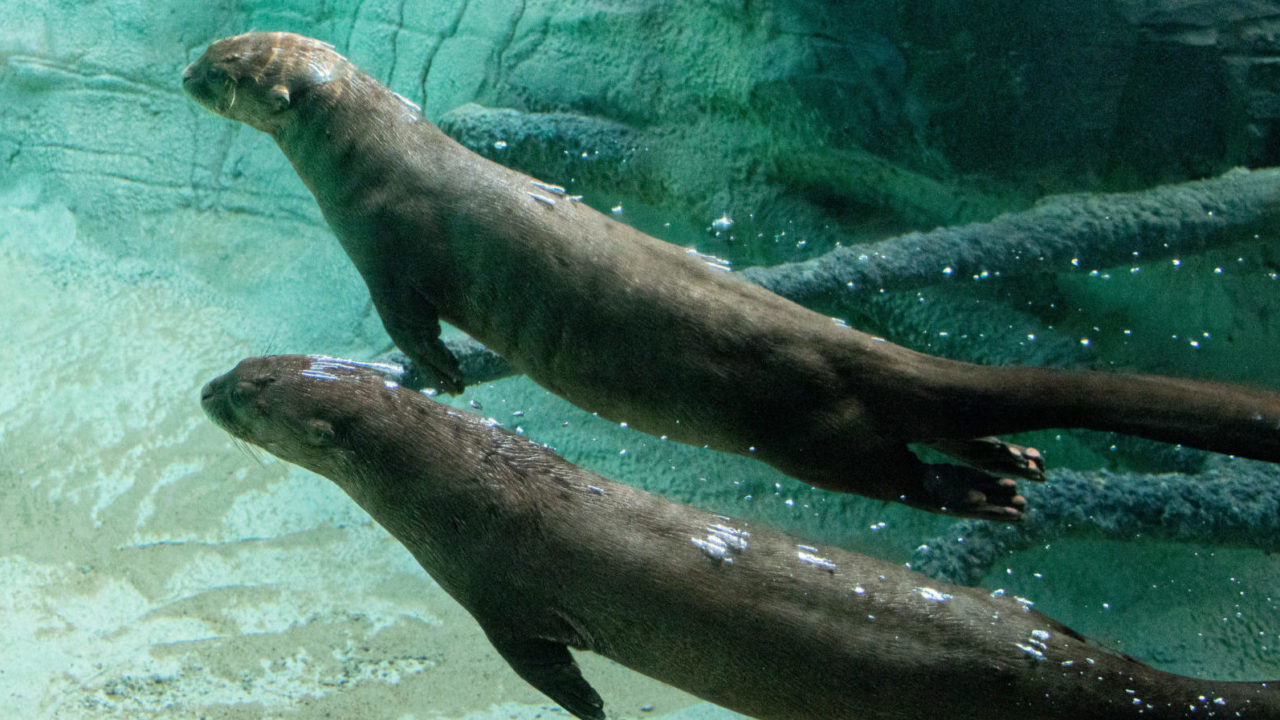Animal Facts
Scientific Name
Pteronura brasiliensis
Range
Amazon basin including: Brazil, Bolivia, Colombia, Ecuador, Guyana, Venezuela, Peru
Location in the Zoo
South America’s Pantanal
Cool Animal Fact
Baby otters aren’t born knowing how to swim, but their parents teach them.
How We Help Save Them
Giant river otters feed mainly on fish and hunt in family groups. Their feeding acrobatics and loud and unique vocalizations make them a favorite spectacle for tourists from all over the world. Thanks to the influx of ecotourists’ dollars, local communities can benefit monetarily from the wild animals they share their home with, but some tour operators get too close to otters and jaguars interrupting their behaviors and distressing them, leading to potential conflict and population declines.
To address this issue, the Zoo provides support and training for Brazilian conservation partner, Projecto Ariranhas. This partner instructs local guides in the Porto Jofre Region of Brazil to lead Giant otter-safe tours so that local people and wildlife in the region can safely and successfully benefit from ecotourism.
Where to See Them Inside the Zoo
On the opposite side of the path beneath the lodge, giant river otters splash in a multi-dimensional streamside habitat. Guests will peer at the otters through more than 100 lineal feet of four-inch-thick, crystal-clear acrylic panels that bring them nose-to-nose with the otters above and below water.
This is the first-time guests to the Houston Zoo will have a chance to see this type of otter. At one point along the streambank, schools of large tropical fish, sting rays and turtles can be seen in a sheltered cove, seemingly sharing the stream with the otters (but safely separated by invisible acrylic panels).

